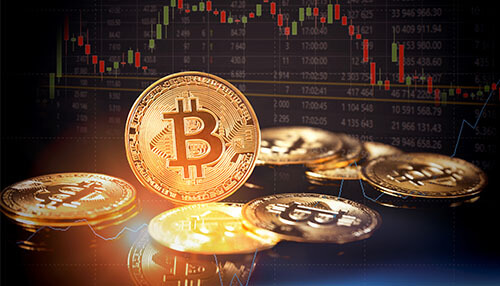A good strategy for investing in any asset is to look at how much return you expect from that investment and then compare it with what other similar investments could produce. This will help you decide whether or not the risk is worth taking. Investing in virtual currencies is an exciting new area of investment with a number of advantages over traditional investments. The first consideration is the return potential. When you invest in virtual currencies, you can expect to earn returns similar to those on stocks and bonds: high. However, the volatility of these investments makes them risky; however, they are also much more liquid than stocks or bonds because they can be traded at any time without incurring exchange fees or commissions. So, make a good strategy and get rolling through Bitcode Prime.
Considerations
The return potential of a virtual currency is determined by how much of that virtual currency can be purchased with one unit of real currency. For example, if you invest $100 in Bitcoin and after 6 months the price of Bitcoin has increased to $99, you would have earned a 1% return on your investment (assuming you did not sell your Bitcoin). If the price of Bitcoin fell back down to $98 after 6 months, then your return would be negative – meaning that you lost money on your investment.
Safety and accountability are also important considerations when investing in virtual currencies. Because these assets are not issued by any government or central bank, there is no way to verify their authenticity or value at any moment in time; this means that it’s possible for them to be hacked or otherwise compromised without warning! It’s also important to remember that while most exchanges offer some level of security against unauthorized access by third parties like hackers through cold storage.
In terms of return potential, it is important to note that virtual currencies have a high risk profile. Despite the fact that they offer high returns on investment compared to traditional investments such as stocks or bonds, they also come with higher risks. For example, if you invest your money in an unregulated cryptocurrency exchange without any protection measures in place, then you might lose all of your money altogether.
Furthermore, transaction fees can be quite high for some cryptocurrencies (e.g., Bitcoin). This means that the money paid out by each transaction will be much smaller than what most people expect or hope for when investing in virtual currencies. This can be problematic for those who want their investments to go further than just one transaction at a time; for example, if someone wants to invest $100 dollars into buying some virtual currency X but only gets back $50 dollars after purchasing X from an online marketplace Y with a higher transaction fee Z than other online marketplaces Z’, then this person may be upset with himself/herself because he/she did not maximize his investment potential. One of the biggest issues with investing in virtual currencies is the high transaction fees associated with them; however, there are ways around this problem! For example, coinbase offers their own debit card which allows users to spend their coins without worrying about fees associated with using other cards (though if you’re using coinbase then it’s probably best just stick with buying bitcoins instead).
The transaction fee is an additional cost associated with using a particular type of virtual currency, such as Bitcoin or Ethereum. Transaction fees can vary depending on the specific transaction and who is facilitating the transaction (the person accepting payment for goods/services). For example, if you are buying something from Amazon using Ethereum but pay a 1% transaction fee when using Ether (Ether), then this will reduce your overall return because it takes more time and resources for transactions involving Ether than those involving other types of digital currencies such as Bitcoin which does not have any fees associated with using its network.
Final words
Virtual currencies are a new way for investors to get into the game. This is the first time that individuals and businesses can invest in assets that aren’t backed by physical assets or government-issued money. This is often a major cost for investors who trade stocks or bonds on an exchange. While there are no transaction fees with virtual currencies, this does not mean that trading is free—the cost of buying and selling the currency will vary depending on the platform used and other factors such as volume.




